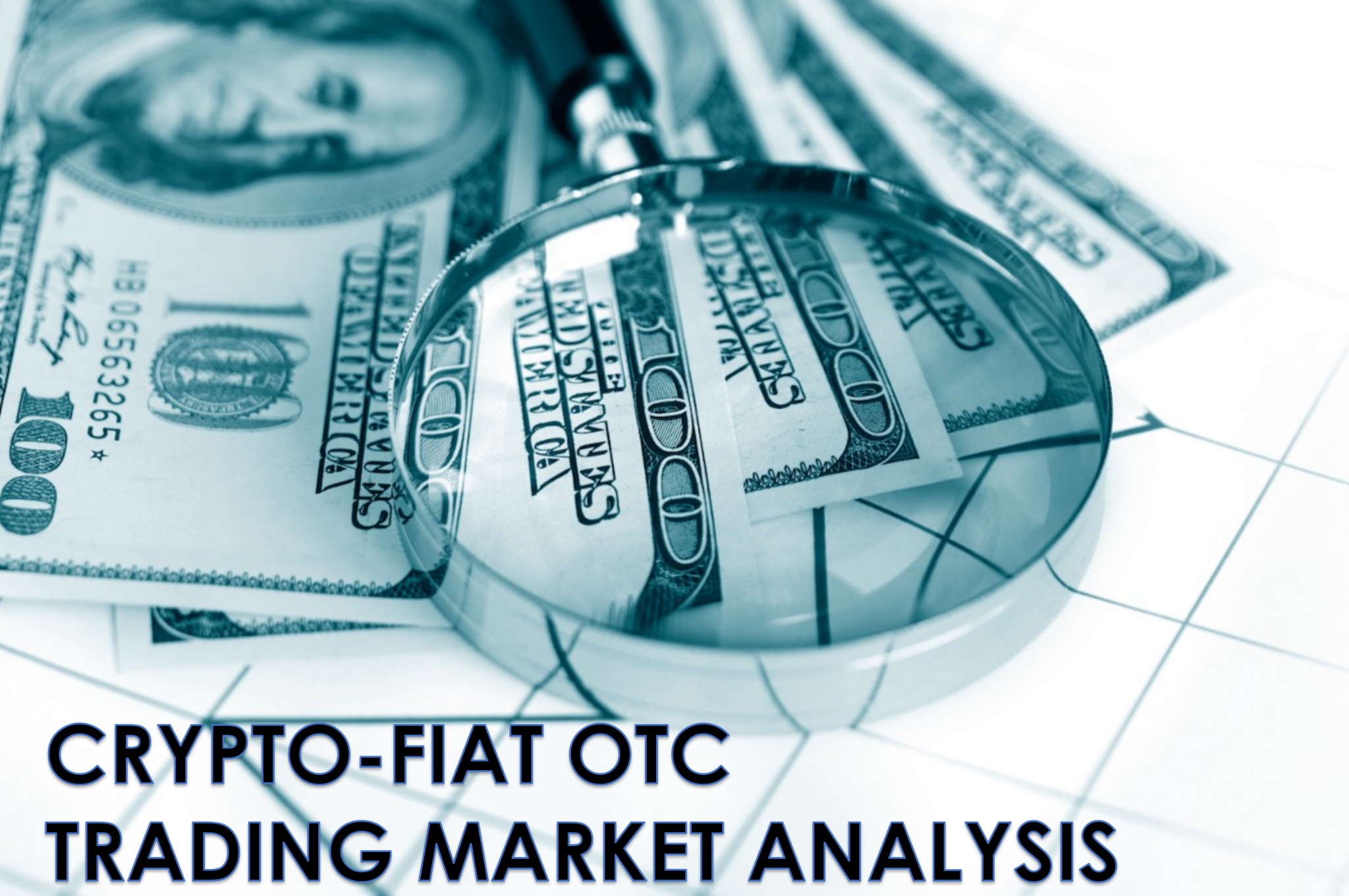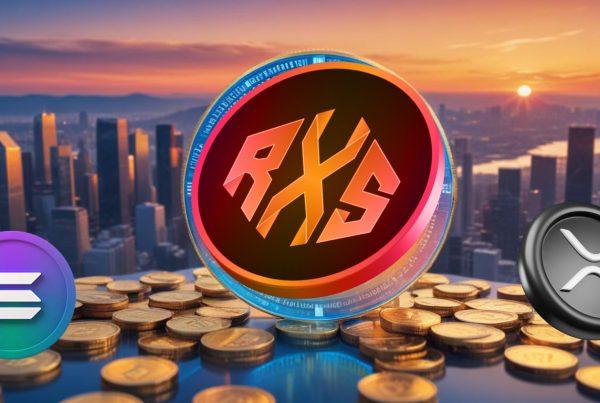
Introduction
No doubt, the advent of cryptocurrency has changed a lot in our world today especially in the financial sector. Many individuals now trade crypto with ease via a process known as Over-The-Counter Trading or OTC. Over-The-Counter Trading is a financial technology system that permits trading markets outside a conventional exchange platform. In simple terms, with regards to the crypto and bitcoin market, OTC trading is a private trading market for buying or selling cryptocurrency.
Usually, transactions involving OTC trading are not conducted on regular or conventional exchanges, which is why they don’t require a public order book which is why OTC trading provides an increased privacy for both buyers and sellers of cryptocurrency. The anonymity and minimal influence on market prices are the main draws for OTC consumers. The “Whales” who want to purchase or sell a lot of cryptocurrencies are catered to by OTC. These “Whales” would experience significant slippage in their transaction if they were to buy a significant amount of cryptocurrency on an exchange. Due of this, high net worth people seeking to engage in significant trading may find OTC trading to be an attractive choice. More than half of all cryptocurrency trades are thought to be conducted anonymously. Additionally, some believe that OTC trading of cryptocurrency is two to three times more common than trading on traditional exchanges.
How OTC Trading Functions
OTC Traders keep up a network of cryptocurrency buyers and sellers. Larger OTC companies also keep an inventory of several crypto currencies to suit their anticipated demand at any particular time. OTC traders are always aware of who is buying, selling, and the ideal moment to complete a certain transaction. The broker will acquire the cryptocurrency or fiat required to complete the transaction whenever a buy or sell order is received. Trading in cryptocurrencies over the counter (OTC) is gaining popularity all around the world.
OTC Market Size
The daily OTC market was estimated by Bloomberg to be between $250 million and $30 billion in April 2018. When compared to cryptocurrency exchanges, this is almost $15 billion every day. Although, the reported quantities range widely. In April, Bravecoin.com stated that daily OTC volumes were three times more than exchange levels. The OTC market was valued at $12 billion every day by TABB Group and $250 million by Digital Asset Research, respectively. Despite the fact that the market is opaque, it is generally accepted that daily OTC volumes for cryptocurrencies are far higher than exchange-traded volumes. However, claims that cryptocurrency exchanges have been intentionally inflating their declared volumes only serve to complicate matters further.
The Merits of OTC Trading
- Order books on cryptocurrency exchanges have little liquidity. Large trade orders can be quickly processed by OTC desks while they look for market liquidity.
- Price protection, Anonymity – Moving big orders over the counter (OTC) is a smart way to move bitcoins without affecting the price, for example. Order depth won’t appear as it would on an exchange.
- No fiat onramp – there aren’t many crypto exchanges with fiat onramps (though Binance is working on it and already have some solutions in place in Asia).
- Prevent price “slippage” – on exchanges, price slippage happens when the executed price differs from the predicted price.
Note: Hedge funds and miners are now the biggest buyers and sellers in OTC Trading. Reddit Rumors stated in October 2018 that hedge firms were purchasing significant amounts of mining equipment from miners. Other features of trading crypto OTC are:
- Licensed broker-dealers (on account).
- OTC desks for crypto exchanges (on account)
Asia and North America are the regions that are the main propellers of OTC trading.
OTC Trading Types
- Dealer, Trader – trade with their own money, or ‘on behalf of’ someone through their own account.
- Brokers – an intermediary who finds buyers and sellers.
- Exchange OTC desks – crypto exchanges who run OTC desks (servicing clients who don’t want to trade on exchange).
How are the buyers and sellers finding each other?
• Through private, public and broker specific chatrooms:
Broker hosted secure chat rooms.
IRC chatrooms #bitcoin-otc.
Skype chatrooms (hosted by Cumberland).
Telegram.
even LinkedIn (according to Forbes) – six figure trades are common.
• Through OTC Brokers
iTBit OTC.
HiveEx OTC.
How is the off-exchange market executing?
- Through OTC brokers like Octagon Strategy, Genesis Trading and Circle.
- SFOX also offer advanced software for price discovery and price execution. For example, they can enable top of all order book execution across exchanges, and weight average execution.
- The majority of brokers execute based on Request for Quote (RFQ) and ‘Fill or Kill’ (FOK).
What are the problems with OTC?
- Settlement risk – there is no guarantee the asset will be delivered, or cash will be paid. Coin transfer often happens much faster than the wire payment transfer (often by several hours).
- No custody solution – most OTC brokers don’t provide a custody solution (or provide a very limited service), which can increase settlement and operational risk.
- Multi-jurisdictional KYC issues – dealing with countries with poor KYC regulations can be a deal breaker • If you execute through an OTC broker you need, for example, to deliver the BTC to the broker. There is no guarantee the brokers client will pay.
- The larger the order the greater the risk of default with multiple counterparties.
- OTC crypto is missing the monitoring and surveillance tools of traditional trading systems.
Is emerging software solving these problems?
- Fiat onramps are being built.
- Fidelity, the world’s fifth largest asset manager, is going to start storing and trading crypto to be sourced from OTC markets for institutional investors.
- Software needs to replicate settlement, clearing and risk management systems.
- OTCXN – building a multi-custodian solution with a clearing and settlement mechanism that connects Liquidity providers. Creating a Layer 2 network sitting above the public ledger.
- OTCXN – partnering with Kingdom Trust and Prime Trust (both registered and qualified Custodians with the SEC).
- Caspian – recently raised $20 mill through an ICO. Wants to build a single user interface that connects to major exchanges. Partnering with BC2C.
Difference between Crypto OTC Trading Platforms
The Over The Counter (OTC) market is a decentralized cryptocurrency market for unlisted securities that lacks a physical location and instead relies on a network of communication tools like computers, phones, emails, and other devices for direct negotiation between the parties involved in the trade. Because there is no official exchange for trading OTC, it is often referred to as off-exchange trading. Financial commodities like bonds, stocks, currencies, etc. are all primarily traded in the OTC market, regardless of whether the trading takes place between two corporations or financial institutions. In general, OTC is a dealer market that enables the buying and selling of financial commodities in which investors directly contact the dealers who are willing to sell their commodities.
They are the four best crypto OTC trading platforms which are:
- AirCash
- LocalBitcoins.com
- Paxful
- MoonPay
1. AirCash
AirCash is a landing application of AIR ecology, and it’s also the most advantageous and relevant trading platform at present because it doesn’t allow extra withdrawal fees like Binance, LocalBitcoins.com, Paxful, and MoonPay. Additionally, Aircash is the world’s first and largest OTC platform. Using this platform, you can buy and sell commodities decentralized without encountering any obstacles or pointless tasks.
One of the intriguing reasons AirCash is preferred to Binance is because identity verification, KYC regulations, and the creation of personal accounts are not relevant. Additionally, it no longer permits personal information, security, and privacy; this creates a reliable environment for traders and investors. However, AirCash supports a P2P trading mechanism, and you are the only one who is aware of the specifics of your trades.
Another important factor making AirCash superior to Binance and other OTC trading platforms is that it does not charge transaction fees, whereas Binance charges 0.38% for all transactions. Using AirCash is preferred if you don’t want OTC platforms to deduct from your assets because your transaction will arrive exactly as planned with no fees or tax deductions. When it comes to decentralization, Binance, localBitcoins.com, Paxful, and MoonPay are not decentralized trading platforms; however, AirCash is. And that’s still another factor favoring AirCash above other OTC trading platforms for the task at hand. As a result, compared to other trading platforms, AirCash has more advantageous features.
Why AirCash Is Better Than Binance, LocalBitcoins.com, Paxful, And MoonPay
- Unlike Binance, LocalBitcoins.com, Paxful, and MoonPay, which require a personal account before using their platforms, AirCash does not require one for you to use it. It advocates reliability and privacy more than any other platform.
- Transactions on AirCash occur comparatively quicker than on Binance and other trading platforms. As opposed to Binance, which takes 24 hours to display transactions, it does so immediately.
- Tax payment fees for AirCash are 0%, while those for Binance, LocalBitcoins.com, Paxful, and MoonPay are 1%, 1%, and 8%, respectively.
- Contrary to Binance, Paxful, LocalBitcoins.com, and Moonpay, which prioritized registration, AirCash does not support additional registration.
- AirCash is the first, fastest, and largest decentralized OTC platform in the world. Although Binance, LocalBitcoins.com, Paxful, and MoonPay are currently not decentralized, AirCash is a decentralized trading platform.
- Unlike Binance and other trading platforms, which impose withdrawal costs before users can access their delivery funds, AirCash does not charge additional withdrawal fees to dealers.
Where to find AirCoin DAO Labs and AirCash:
AirCoin DAO Lab Website: https://aircoin.cool
AirCash Website: https://aircash.finance
Twitter: https://twitter.com/Aircoinreal
Telegram: https://t.me/aircoinofficialgroup
Discord: https://discord.com/invite/aircash
Facebook: https://www.facebook.com/aircoinreal



